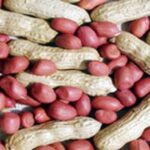Accra, June 5, GNA – Aflatoxins, a group of toxic compounds produced by fungi, which contaminate stored crops due to heat, humidity and the activities of insects and rodents continue to constitute a major health hazard in Africa, and concrete measures must be taken to control them, an Expert Group Meeting on Aflatoxins and Health recommended at its just-concluded consultation in Brazzaville, Republic of Congo. The toxic substances – found in improperly stored foods such as corn, wheat, nuts, peanut butter and dried fruits – are known to be causative factors in child stunting, child mortality, immune suppression and child neurological impairment, in addition to causing household food insecurity.
It also has a synergistic effect with the hepatitis B virus in the etiology of liver cancer and could interact with HIV/AIDS. A statement issued by the World Heath Organisation (WHO) and received in Accra on Monday said exposure to high levels of aflatoxins causes acute aflatoxicosis, which was often under-recognized and under-reported as a cause of liver damage.
It said participants at the meeting reviewed and discussed 12 scientific papers on the health and nutrition impacts of Aflatoxins and other mycotoxins (toxic substances produced by fungi) and agreed that these substances impacted negatively on livelihoods, particularly of poor people, who had limited freedom for food choices. There was also consensus that the menace of Aflatoxins was a health problem rooted in the entire food chain, thus requiring a multi-disciplinary approach for analysis, action and solution. In its recommendations, the Expert Group called on WHO to engage national governments to recognize exposure to Aflatoxins as a major public health issue; incorporate prevention and control of exposure to Aflatoxins in health, agricultural and social development policies and provide technical advice to establish early warning systems for acute occurrence of the condition.
It urged governments to incorporate surveillance for the condition in WHO Foodborne Disease Surveillance and the Integrated Disease Surveillance Systems and facilitate greater interaction with UN and other agencies for prevention and improved management of outbreaks. It also called on WHO to strengthen health laboratories to include Aflatoxin capacity, and reflect Aflatoxin concerns in guidelines for Integrated Management of Childhood Illness and Integrated Management of Adult Diseases, as well as diets for pregnant/lactating women, infants and young children.
The WHO said in addition to causing premature deaths in Africa, Aflatoxins exert enormous economic toll in the region. A World Bank study recently cited by UN Secretary General, Busumuru Kofi Annan, revealed that the European Union regulation on Aflatoxins costs Africa 750 million dollars each year in exports of cereals, dried fruit and nuts.
The statement said the findings of the Expert Group would be discussed at the Global meeting on Aflatoxins in Geneva, Switzerland, in July and the FAO/WHO Regional Conference on Food Safety for Africa in Harare, Zimbabwe, in October.
Source: GhanaWeb












